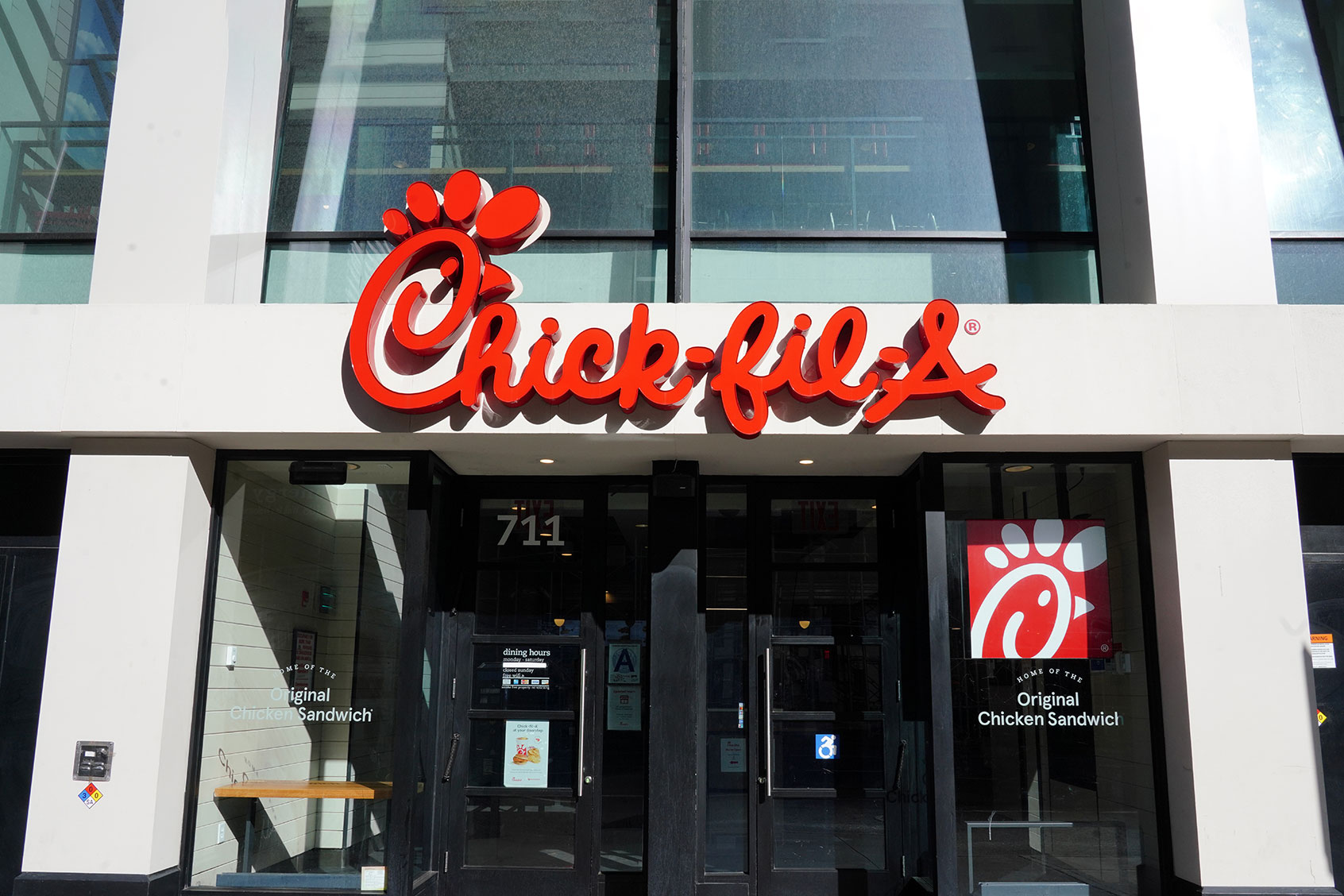Chick-fil-A is officially abandoning its decade-old “no antibiotics ever” pledge, which assured consumers that no antibiotics of any kind were used in raising chickens that are served by the fast-food chain. Starting in spring 2024, Chick-fil-A will embrace an industry standard known as “no antibiotics important to human medicine,” often abbreviated as NAIHM. The forthcoming change restricts the use of antibiotics that are commonly used to treat people, and allows the use of animal antibiotics “only if the animal and those around it were to become sick.”
“Chick-fil-A has been dedicated to quality since the beginning,” the fast-food chain wrote in a statement. “Our commitment to the high-quality chicken you expect from us is rooted in three simple things.” They include serving high-quality chicken (with no added fillers, artificial preservatives, steroids or hormones), maintaining high animal wellbeing standards and evaluating their approach to animal wellbeing.
Chick-fil-A’s recent announcement comes after Tyson Foods, the world's second-largest meat processor, said last summer that it would stop using a “no antibiotics ever” label on its packaging. The company began using a “no antibiotics important to human medicine” label at the end of 2023. A Tyson Foods spokesperson told CNN in a statement that the company bases its decisions on “sound science and an evolving understanding of the best practices impacting our customers.”
In the same vein, Pilgrim’s Pride — one of the largest chicken producers in the nation — says it uses some antibiotics. Perdue Farms, however, still says it does not.
About half of US poultry farmers use some form of antibiotics to ensure that their chickens are healthy, per Tyson. Chickens are often raised in close quarters and unsanitary conditions, which makes them prone to various diseases. Amid a ruthless avian-flu outbreak that affected poultry supplies worldwide, many farmers who previously vowed against using antibiotics have turned to them in an effort to preserve their chickens.
Pressure to limit the use of antibiotics in livestock production remains high — especially as more evidence reveals that they’re contributing to drug resistance and reducing the effectiveness of treatment against certain diseases in humans. In 2006, the European Union (EU) banned the use of antibiotics for growth promotion purposes. And in 2013, the United States Department of Agriculture (USDA) issued “final guidance implementing voluntary plans” to discontinue the use of “medically important antibiotics” in livestock for production purposes.
Want more great food writing and recipes? Subscribe to Salon Food's newsletter, The Bite.
Chick-fil-A and Tyson aren’t the only major corporations loosening their food standards. Reuters reported that Panera Bread loosened its standards for “animal welfare and so-called clean ingredients in its food” prior to a planned IPO, per internal company documents. In late February, stores nationwide began removing signs and artwork that feature phrases like “No Antibiotics Ever,” “Vegetarian Fed,” “Grass Fed Pasture Raised,” “Animal Welfare,” or any mention of “Hormones,” according to the documents. The work is set to be completed by March 27.
The fast-food chain’s new internal policy allows the use of "some antibiotics” in pork and turkey products, and allows chicken and cattle to be fed with feed containing animal products.
Read more
about antibiotic use in the food industry:


